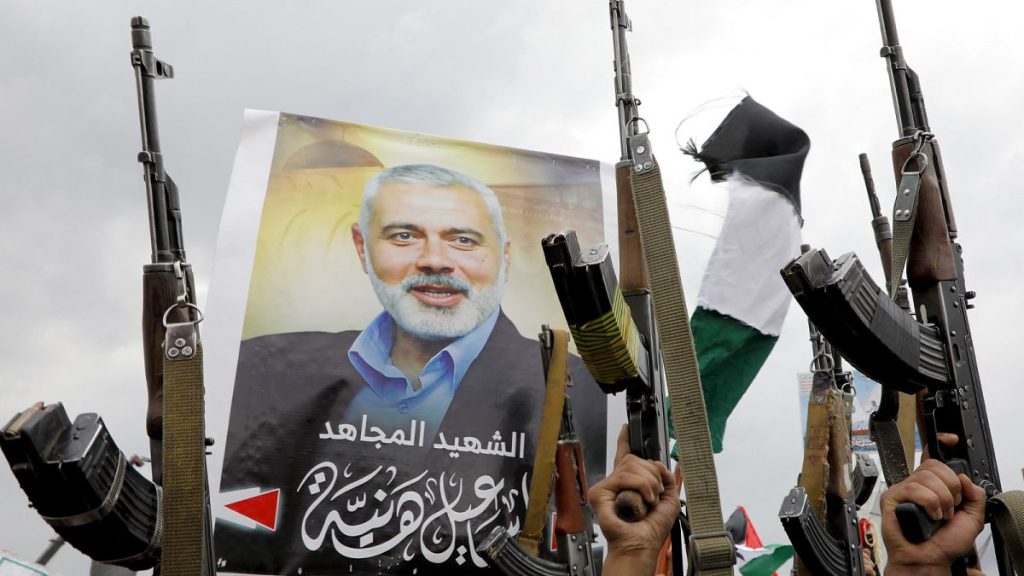Israel’s Shadow War: The Assassination of Ismail Haniyeh and Beyond
The clandestine world of espionage and targeted assassinations was thrust into the spotlight with the revelation by Israeli Defence Minister Israel Katz that Israel was responsible for the death of Hamas leader Ismail Haniyeh. Haniyeh, the political chief of the Palestinian militant group, perished in an explosion in Tehran in July. While Israel’s involvement was widely suspected, Katz’s confirmation marked the first official acknowledgment of the operation, pulling back the curtain on the extent of Israel’s covert actions against perceived threats.
Haniyeh’s demise was a significant blow to Hamas, occurring amidst heightened tensions in the Middle East, particularly the devastating war in Gaza. His leadership within the organization spanned decades, starting with his involvement during the First Intifada in the late 1980s. He rose through the ranks, becoming a key figure following the assassinations of previous Hamas leaders by Israel. Haniyeh was often the face of Hamas in negotiations, though Israeli officials frequently blamed him for the failure of peace talks and the continued captivity of hostages. Internal dissent within Hamas, particularly differing views on ceasefire negotiations and military strategy between Haniyeh and Yahya Sinwar, the military leader in Gaza, added another layer of complexity to his leadership.
Katz’s statement went beyond the Haniyeh assassination, outlining a broader strategy of targeting militant leaders. He referenced the killings of other Hamas and Hezbollah figures, including Sinwar, and implied involvement in destabilizing Syrian President Bashar al-Assad and dismantling Iranian air defense systems. This assertive posture underscores Israel’s willingness to conduct covert operations across borders to neutralize perceived enemies. The declaration further signaled a focus on Yemen’s Houthi rebels, with Katz vowing to strike their infrastructure and leadership. This proactive approach suggests a continuing commitment to preemptive action against groups deemed hostile to Israel’s interests.
The targeting of high-profile figures like Haniyeh raises crucial questions about the ethics and efficacy of such tactics. While proponents argue that eliminating key leaders disrupts terrorist networks and prevents future attacks, critics contend that these actions can escalate violence, fuel resentment, and destabilize the region. The assassination of Haniyeh, in particular, occurred during a period of intense conflict, raising concerns about the potential for further escalation. The incident also highlights the complex and often shadowy nature of the Israeli-Palestinian conflict, characterized by cycles of violence and a lack of trust between the two sides.
Israel’s approach, as articulated by Katz, reflects a doctrine of preemptive strikes and targeted killings to address perceived security threats. This strategy is not without controversy, raising legal and ethical questions about the use of lethal force outside of declared war zones. The long-term consequences of such operations remain to be seen, but the immediate impact is often a heightened state of tension and the potential for retaliatory actions.
The confirmation of Haniyeh’s assassination provides a glimpse into the covert operations undertaken by Israel in pursuit of its security objectives. These actions, while often shrouded in secrecy, have significant implications for regional stability and the ongoing Israeli-Palestinian conflict. The targeting of high-ranking figures like Haniyeh underscores the lengths to which Israel is willing to go to eliminate perceived threats, even as it raises important questions about the long-term consequences of such a strategy. The volatile nature of the Middle East and the deep-seated animosity between Israel and its adversaries suggest that the cycle of violence and retribution is likely to continue, with covert operations playing a significant, albeit often hidden, role.














